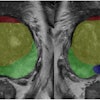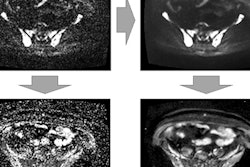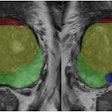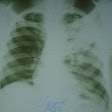Dear Artificial Intelligence Insider,
Although image analysis applications have generated the most publicity over the past few years, artificial intelligence (AI) technology also shows considerable promise for enhancing the image acquisition process, enabling major benefits such as faster scan times and lower radiation dose.
At RSNA 2019, researchers from the U.K. detailed how their AI algorithm could produce high-quality whole-body diffusion-weighted MRI exams in approximately five minutes, potentially paving the way for wider clinical use of these valuable but time-consuming imaging studies.
Meanwhile, a team of Dutch researchers reported at RSNA 2019 that an AI algorithm accurately detected vertebral fractures on CT images containing the spine. As a result, AI could be utilized to perform opportunistic screening for osteoporosis in patients with spine-containing CT exams.
The role of AI in breast screening was also an important topic at the Chicago meeting. A retrospective study from U.K. researchers showed, for example, promising levels of sensitivity at varying recall rate settings. Some essential questions still remain, however, according to Dr. László Tabár of Uppsala University Faculty of Medicine in Sweden.
In the era of AI, imaging specialists need to love their profession more and promote visibility and understanding of radiology's role to ensure that medical colleagues and patients fully appreciate the importance of the discipline, according to Prof. Jacob Sosna, president of the Israel Radiological Association. He shared his predictions about the future of medical imaging in a recent interview.
In another interview, Dr. Pablo Valdés Solís, president of the Spanish Society of Medical Radiology, explained why he believes the radiologist as an "information manager" will coexist with the radiologist as a "carer of the patient" in the era of AI.
AI algorithms need to be trained using data from a diverse set of patients to be generalizable across a range of populations, as evident in a recent study involving an AI-powered dermatology algorithm. Researchers found that the software was ineffective when applied to images of black skin, a performance attributed to the small number of those types of images in the training dataset.
With more than 150 independent software companies developing machine-learning applications for medical imaging, it can be a challenge to decide on an AI vendor. To help, Sanjay Parekh, PhD, of Signify Research offers 10 factors radiologists should consider -- and questions they should ask -- before partnering with vendors providing medical imaging AI products.
Is there a story you'd like to see covered in the Artificial Intelligence Community? Please feel free to drop me a line.



















